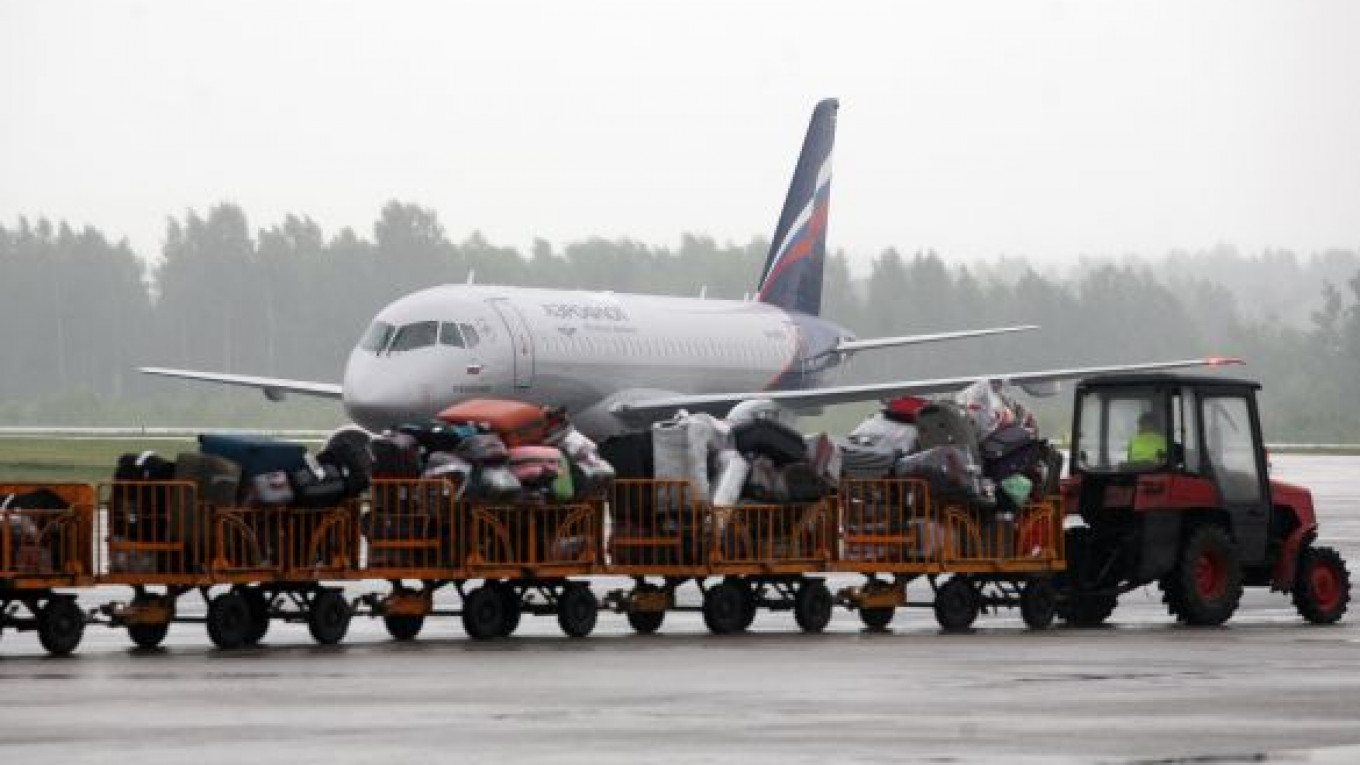Armavia said it would buy one Boeing and one Airbus aircraft instead of the Sukhoi Superjet 100 on Tuesday.
On Monday, the airline, which was the first to put a Sukhoi Superjet into commercial operation, revealed it had cancelled its order for a second plane that was due to be delivered by the end of July.
The Armenian national carrier’s decision to abandon the SSJ is down to the airline’s financial difficulties, Interfax reported.
The decision to abandon the Superjet followed meetings between Armavia executives and representatives of Boeing and Airbus on the first day of the Farnborough Air Show, which opened Monday.
Details of the deal with Airbus and Boeing will be published after the closure of the air show, the agency said.
Interfax cited an anonymous source blaming the decision to abandon the SSJ on Armavia’s own financial problems, suggesting it could not afford lease payments on a second plane.
Superjet has remained bullish despite the news from Armenia. United Aircraft Corporation chief Mikhail Pogosyan told reporters Tuesday that the company hoped to sell about 40 Superjets to three Southeast Asian airlines, though he would not name them.
The IATA warned that the worldwide aviation industry would see profits fall dramatically for the second year running.
The association forecasts that in 2012 airlines will rake in just $3 billion in profit on $631 billion in revenue — down from a peak of $15.8 billion profit in 2010.
Speaking to journalists in Moscow, IATA Russia and CIS director Dmitry Shamrayev said that while fuel costs have been marginally eased by a small drop in the oil price to around $95 a barrel, instability in the euro zone and the subsequent drag on economic growth mean airlines will continue to face financial pressure.
The IATA said in its May 2012 report that there was a drop of 1.9 percent in global airfreight on the same month last year and flat passenger traffic versus April.
In 2011, Russia’s top 35 air carriers lost 14.5 billion rubles ($440 million), the Association of Air Transportation Operators said this week.
Jeppesen, a division of Boeing Flight Services, will assist the Irkut Corporation in building its new MS-21 airliner.
Under a five-year agreement signed at Farnborough on Tuesday, Jeppesen will provide services to help assess the performance and fuel efficiency of the new plane. The MS-21 is a twin-engine mid-range jet intended as a replacement for aging Tupolev 154s. The new plane is expected to fly for the first time in 2015, with certification and first deliveries scheduled for 2017.
A Message from The Moscow Times:
Dear readers,
We are facing unprecedented challenges. Russia's Prosecutor General's Office has designated The Moscow Times as an "undesirable" organization, criminalizing our work and putting our staff at risk of prosecution. This follows our earlier unjust labeling as a "foreign agent."
These actions are direct attempts to silence independent journalism in Russia. The authorities claim our work "discredits the decisions of the Russian leadership." We see things differently: we strive to provide accurate, unbiased reporting on Russia.
We, the journalists of The Moscow Times, refuse to be silenced. But to continue our work, we need your help.
Your support, no matter how small, makes a world of difference. If you can, please support us monthly starting from just $2. It's quick to set up, and every contribution makes a significant impact.
By supporting The Moscow Times, you're defending open, independent journalism in the face of repression. Thank you for standing with us.
Remind me later.






